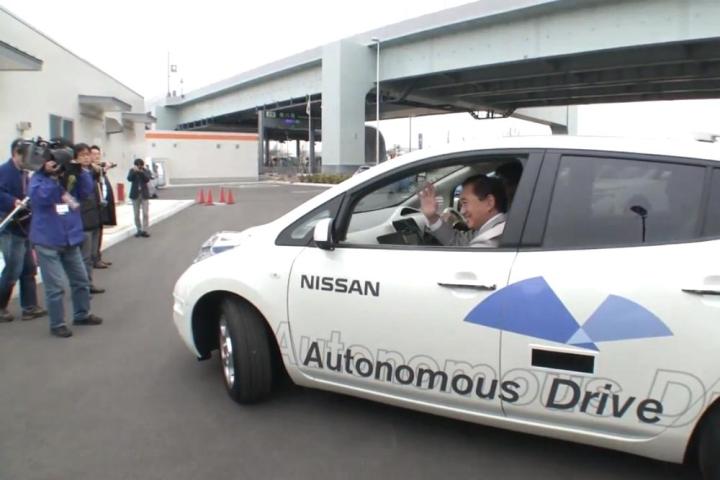
Google and others may be in the midst of developing self-driving cars but Japanese automobile giant Nissan is also making headway with work on its own such vehicle, this week taking it out on public roads in full automatic mode for the very first time.
The specially adapted Nissan Leaf, complete with its combination of lasers, radar, GPS, and cameras, was put through its paces on a highway in Kanagawa prefecture, southwest of Tokyo.
With prefecture governor Yuji Kuroiwa and Nissan vice chairman Toshiyuki Shiga on board, the company really couldn’t afford for anything to go wrong, and fortunately for the car’s high-profile passengers, as well as the entire project itself, there were no knocks, prangs, or horrific twisted-metal entanglements during its first real-world test.
Featuring Nissan’s dryly named Advanced Driver Assist System, the company’s self-driving car sped along in full automatic mode during the 2-mile (3.2km) drive, merging comfortably into traffic and changing lanes smoothly, all while maintaining a safe distance from other vehicles. The car reached speeds of 50mph (80kmh) during its outing.

The Leaf has also been adapted with self-driving technology by a team in the UK, though the Oxford-based team’s RobotCar project has so far only managed to develop an autonomous driving experience along specific routes which the team’s technology has memorized.
This week’s successful test presumably means Nissan’s plan to have its self-driving vehicle in the nation’s car showrooms by 2020 is still on course. Results of a survey conducted last month, however, show that the Japanese car maker may need to spend as much on marketing its driverless car as it is on its development, with respondents favoring self-driving vehicles from the likes of Google and Mercedes-Benz over Nissan-made ones. Still, with seven years before it plans to start selling them, it has plenty of time to win hearts and minds.
Editors' Recommendations
- Volkswagen is launching its own self-driving car testing program in the U.S.
- This self-driving racing car could have done with a driver
- Waymo puts its self-driving cars back on Arizona roads as lockdown is eased
- Lyft’s self-driving car-testing program is racking up the miles
- Self-driving truck company wants to test without ever using public roads


